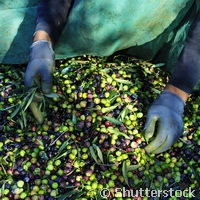Simple and effective resource efficiency measures along the food supply chain
An EU-funded project has shown that it is possible to reduce water consumption in fruit farming by over 40% while still maintaining the same quality and yield. This was the chief finding of the RESFOOD project's first field trial of blackberry growth in soilless crops. The innovation offers economic benefits to producers, who can reduce their use of fertilizers and biological control agents. In environmental terms, the RESFOOD project, which began in November 2012, promises to achieve much better water management in food processing. Instead of discharging after first use, water is reused, a simple measure that could eventually have the potential to cut water and energy use in food processing by as much as 50 to 80%. Importantly, the RESFOOD project does not just address resource efficiency in farming, but also tackle salient issues across the whole of the food chain. These include achieving safer food production, recycling and reuse. Many natural resources - such as minerals, water, soil, biomass, land and energy - are used to grow and process food products in a highly inefficient manner. This can be due to a lack of technological solutions and knowledge, in combination with uncertainties about health and safety issues. Another important challenge in food chain management is the large amount of wasted food. Through careful analysis of these issues, the RESFOOD project will develop innovative methods and technologies - like the successful field blackberry trial - that encourage the reuse of nutrients, energy, water and biomass, and maximise resource productivity. The RESFOOD resource efficiency concept is based on a cascade approach. The most efficient solutions with the lowest required effort - such as direct reuse of water and biomass - should be prioritised, followed by more complex solutions such as the withdrawal of useful products and energy from water and the recovery of valuable material from food waste biomass. "Various valuable components can be extracted from the side streams of the agro-food industry before they go to feed or bio-energy", says Maarten Uyttebroek from VITO, leading the project's biomass work package. "These components can be used at different stages of the food chain or in other industries such as pharmaceuticals and cosmetics. So we will use the resources more efficiently." Reducing health and safety risks by mitigating food-borne outbreaks is another major concern. To this end, new ways of improving the disinfection of vegetables will be developed, thus reducing the amount of water used in traditional chlorination processes. New technologies will also be developed in order to detect contamination at the earliest possible stage of the food chain. The end result of the RESFOOD project will be affordable, practical and cost-effective solutions for the whole food production and processing industry. The new technologies offered will help to stimulate new markets and create new opportunities for businesses. The project, which will receive a total of EUR 4 335 900 in EU funding, is scheduled for completion in October 2015.For more information, please visit: RESFOOD http://www.resfood.eu/web/ Project factsheet
Countries
Netherlands



